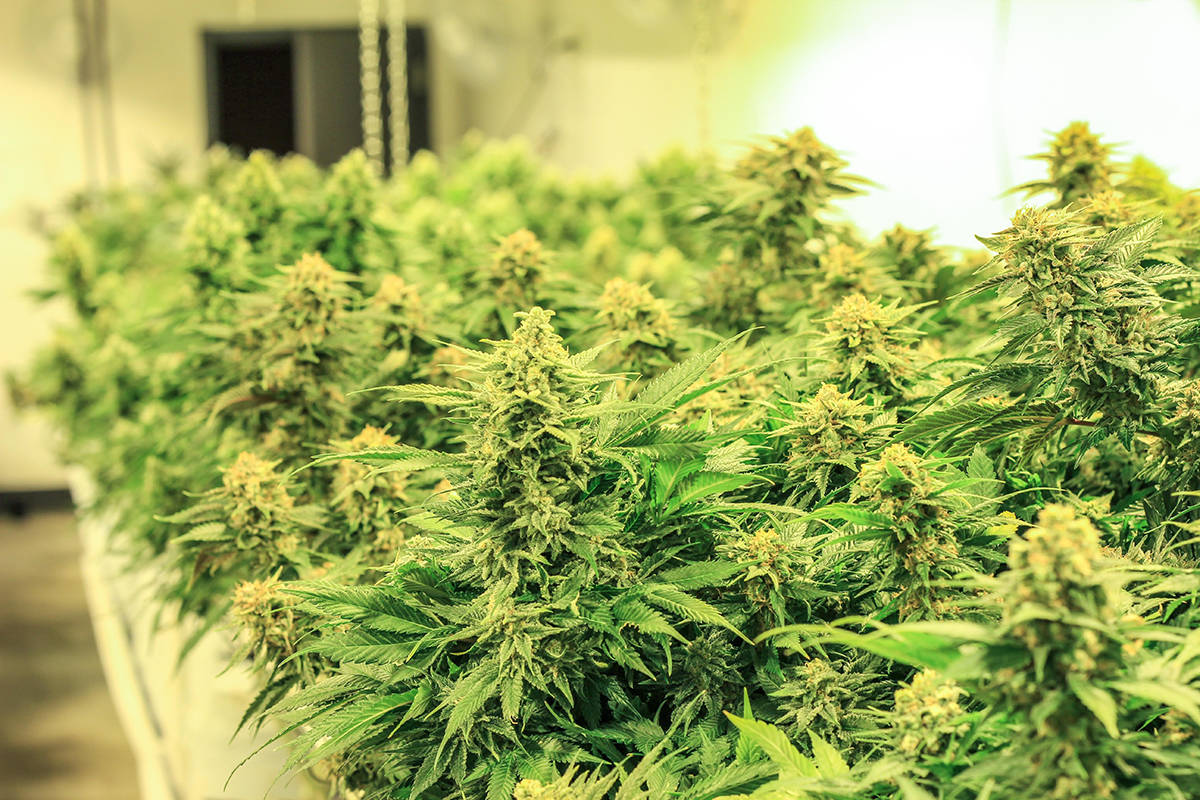Legalization is not a free for all, and when it comes to toking up there’s a few important rules British Columbians would be smart to remember.
Puff, puff, pass: Cannabis officially legal in Canada
Here are 10 things you cannot do with recrational cannabis.
1. Carry more than 30 grams in public
If you’re leaving the house, make sure you check your pockets. Possession limits under the Cannabis Act say anyone can carry 30 grams of dried cannabis, or the equivalent in non-dried form.
One gram of dried cannabis is equal to:
- 5 grams of fresh cannabis
- 70 grams of liquid product
- 1 cannabis plant seed
If caught carrying more, penalties can include tickets and fines for small amounts or up to five years in jail. However, you can posess up to 1,000 grams of dried cannabis in the privacy of your home – and up to four personal plants.
2. Bring pot on international flights
Even if your end destination also welcomes the use of recreational cannabis, bringing it along for the plane ride is illegal. That includes to U.S. states such as Colorado or Washington. Meanwhile, taking cannabis – within the legal possession amount – between provinces or on domestic flights is legal.
3. Smoke up wherever you please
Sure, it’s legal – but just like smoking tobacco, it’s not going to be enjoyed by everyone. B.C.’s rules are similar to those restricting tobacco use in the province, with no smoking or vaping cannabis within six metres of doorways, windows, bus stops and shelters or air intakes for public buildings.
No recreational cannabis products can be used on school property, but licensed medical cannabis can be used at school.
Beyond schools, indoor use can be allowed in designated areas. That includes hotel rooms if the hotel permits it, as well as designated rooms in hospitals, assisted living or retirement facilities. Regional or municipal parks are off limits, except for designated campsites.
The provincial fine for smoking cannabis in a prohibited place is set at $230, but only $58 for vaping.
4. Cross the border for business pertaining to weed
While the U.S. Customs and Border Protection said those working in Canada’s legal marijuana industry shouldn’t see any problems crossing the border, that drastically changes if the trip involves official cannabis business.
“If a traveler is found to be coming to the U.S. for reason related to the marijuana industry, they may be deemed inadmissible,” a statement released in October, 2019 said.
5. Give cannabis to a person under 18
The Cannabis Act has several measures that help prevent youth from accessing cannabis, including two new criminal offences when it comes to providing cannabis to someone under the age of 18.
Giving or selling pot to a minor, or using them to commit a “cannabis-related offence” carry a penalty of up to 14 years in jail.
6. Drive
As with alcohol, driving while impaired by cannabis is illegal – despite this being one of the most contentious factors surrounding legalization.
Most police forces will be relying on roadside sobriety tests, with the use of the Draeger DrugTest 5000 being approved by Ottawa in August.
Federal Bill C-46, which was passed in the spring, gives police the authority to demand a driver provide an saliva sample if it’s suspected they are impaired. If positive, a blood test could be used to determine if a criminal offence has been committed.
A driver who is found to have at least two nanograms, but less than five, of THC (the primary psychoactive component in cannabis) per millilitre of blood could face a fine of up to $1,000.
If a driver has a blood level of more than five nanograms of THC will face a fine and the possibility of jail time.
7. Buy some green off a friend
If you aren’t a licences retailer, it is illegal to sell cannabis – even to a friend. If being caught selling marijuana without a license you can face fines up to $5,000 or up to 14 years in prison.
Of course, you can freely share your marijuana with friends.
8. Go to work high
A recent Ipsos poll shows that roughly 82 per cent of employees across the country aren’t fully aware of workplace rules around cannabis use.
But in B.C., under current occupational health and safety regulations, employers must not allow a worker who is impaired for any reason to perform work activities that could endanger the work or anyone else and not allow a worker to remain at any workplace while the worker’s ability to work safely is impaired by alcohol, drugs or any other substance.
Individual employers have final authority on drug policies in the workplace.
9. Advertise marijuana
Don’t expect flyers detailing weekly deals on strains to start showing up on your doorstep. Similar to the current restrictions on advertising for tobacco products, the Cannabis Act helps discourage youth cannabis use by prohibiting different kinds off advertising.
This includes:
- products that are appealing to youth
- packaging or labelling cannabis in a way that makes it appealing to youth
- selling cannabis through self-service displays or vending machines
- promoting cannabis, except in narrow circumstances where young people could not see the promotion
Penalties for violating these prohibitions include a fine of up to $5 million or three years in jail.
@ashwadhwani
ashley.wadhwani@bpdigital.ca
Like us on Facebook and follow us on Twitter.

